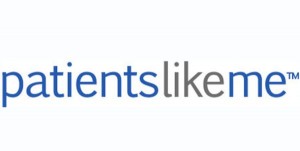Judging by the recent spate of events, it won’t be surprising if the world is taken over by storm by the new DIY health care revolution in the coming years. In retaliation to the failure of government as well as private sector to provide an innovative healthcare system, people have decided to create one on their own, primarily discussed at the Lift Conference in France this week. Innovators from several countries around the world took part in the conference in a bid to find how digital technologies can affect the healthcare system.
 With the rise of concepts like social networking, crowd sourcing and open source software, the DIY Healthcare Revolution has seen a sudden boost. Risa Lavizzo-Mourey, president and CEO of the Robert Wood Johnson Foundation, shared the details regarding the early stages of this revolution.
With the rise of concepts like social networking, crowd sourcing and open source software, the DIY Healthcare Revolution has seen a sudden boost. Risa Lavizzo-Mourey, president and CEO of the Robert Wood Johnson Foundation, shared the details regarding the early stages of this revolution.
At Lift, Paul Wicks from an online social network called PatientsLikeMe.com explained about how digital technologies could help put the patient at the center of the system. Accordingly, websites like PatientsLikeMe.com can act as a platform for patients with similar conditions and symptoms to interact with each other and share their experiences. The data collected from this informal community can then be used to crowdsource an appropriate cure that would work equally well for all patients.

The surprising fact is that even health care innovators have decided to embrace the open source mentality with open arms in order to create newer, low cost solutions for existing problems. Health care providers around the world have even decided to make their research and development sections freely shareable among viewers. The end result is the flow of innovative ideas to and from patients themselves. Case in point: the Open Prosthetics Project created by Jonathan Kuniholm that has open sourced its research and development phase to the public in order to get better ideas for high quality prosthetics that do not necessarily cost an arm and a leg.
There is no doubt that open and crowdsourcing has changed the way people perceive health care solutions. Other innovations in the form of mobile devices with GPS functionality can record data of the user’s body. For instance, Asthmapolis uses GPS and an asthma inhaler to monitor the medication use by the patient in order to track high usage zones.
Summary
The healthcare industry is slated to undergo a sea change with the advent of new DIY innovative technologies. Along with patients, even healthcare innovators have embraced the change and are coming up with ways to make healthcare more affordable without compromising on quality.



